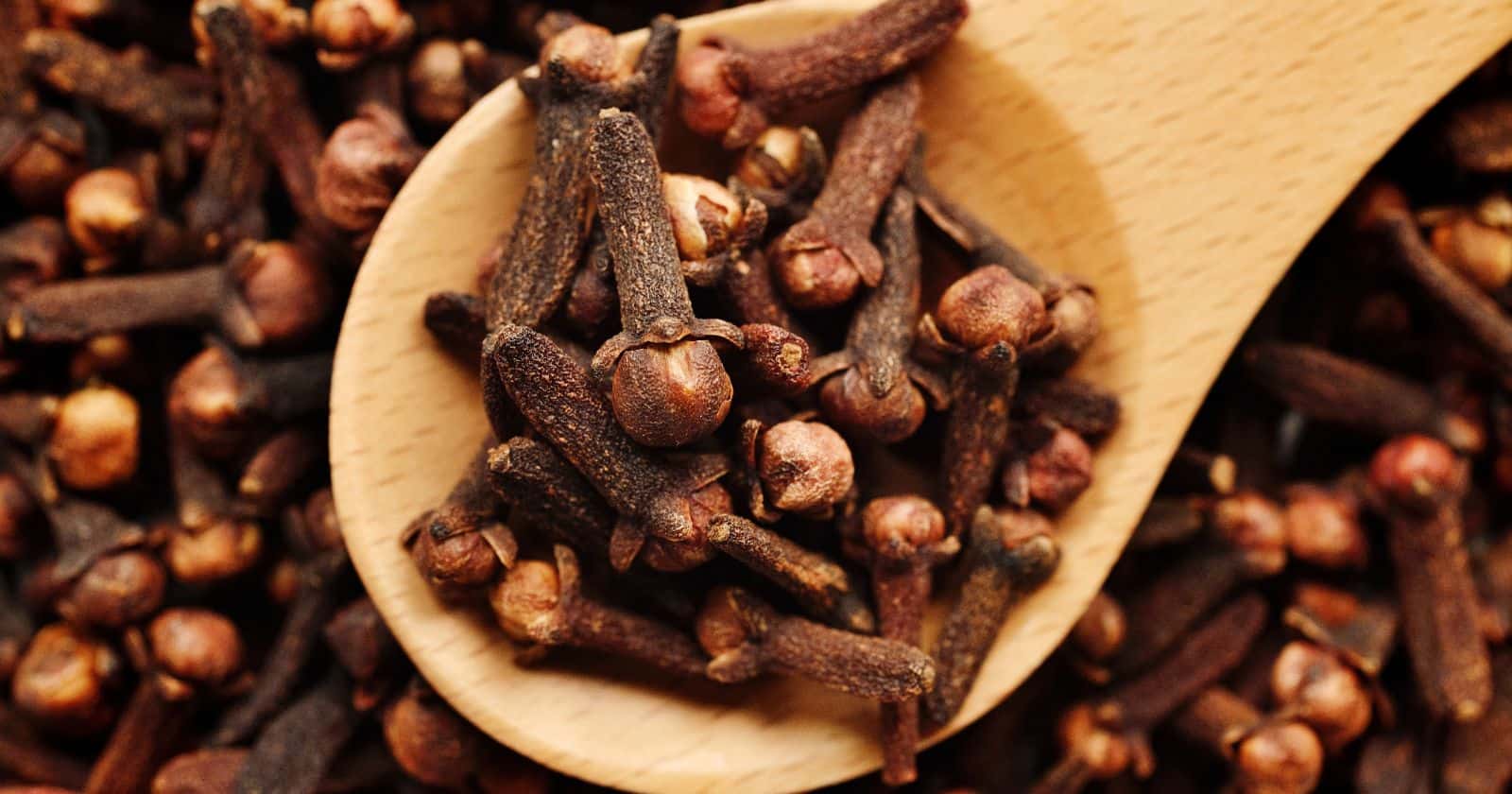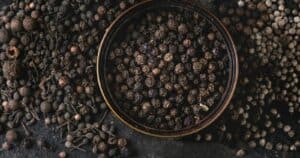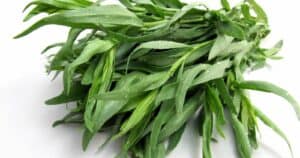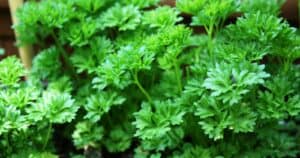Are you tired of feeling bloated and dealing with digestive discomfort? Do you want a natural solution to boost your immune system and fight off infections? Look no further than cloves.
Cloves are a flowering plant that is native to Indonesia and used in a variety of dishes and healthcare practices. These dried flower buds contain eugenol, which has anti-inflammatory, antioxidant, and antimicrobial properties, making them a valuable addition to any diet.
In this blog post, we will dive deeper into the benefits of cloves, including how they can improve your digestion, promote oral health, reduce inflammation, and more.
We will also explore creative ways to incorporate cloves into your daily routine, from using them in cooking. By the end of this post, you’ll be well on your way to harnessing the power of cloves for a healthier, happier you.
What are Cloves?
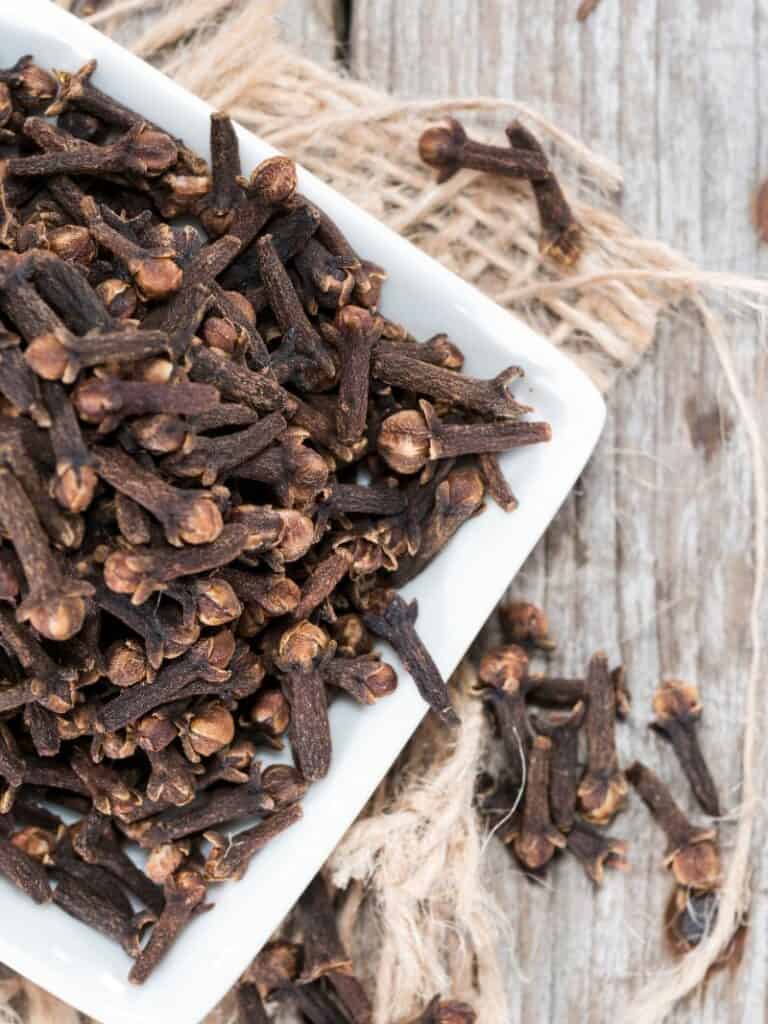
Cloves are an exotic and unique
Since ancient times, cloves have been traded worldwide and grown in other regions such as India.
In addition to their traditional culinary use, cloves offer various health benefits, including aiding digestion and providing antioxidant properties. They can help boost immune function, regulate hunger, and treat oral diseases.
Cloves have anti-inflammatory properties, which can help reduce pain and provide liver protection; they may even help control blood sugar levels and protect against cancer by preventing mutation.
Flavor Profile Of Cloves: Warm, Aromatic, And Sweet
Cloves are an exotic and fragrant
Cloves are versatile as they communicate well with sweet and sour dishes while providing visual appeal to the food.
Cloves have a warm and inviting aroma at their core, thanks to their high concentration of eugenol – the same substance found in cinnamon.
Moreover, cloves add sweetness to balance sourness due to their sugar content. So if you’re looking for ways to add deep flavor to your gourmet creations, look no further than this fascinating
How This Spice Can Improve Your Health
Cloves are an exotic
Eugenol is an essential component of cloves, which is remarkable as it can help reduce dyspepsia and nausea while supporting liver function.
Here are some potential health benefits of cloves:
- Anti-inflammatory properties: Cloves contain compounds that help reduce inflammation and swelling.
- Analgesic properties: Cloves have pain-relieving properties that make them helpful in treating headaches, toothaches, and other types of pain.
- Antimicrobial properties: Cloves have antibacterial and antifungal properties that can help fight off infections.
- Digestive benefits: Cloves can help relieve digestive issues such as bloating, gas, and diarrhea.
- Improved respiratory health: Cloves can help relieve respiratory conditions such as asthma and bronchitis.
- Antioxidant properties: Cloves are rich in antioxidants, which can help protect the body against damage from free radicals.
- Anti-cancer properties: Some studies suggest that the compounds found in cloves may help prevent certain types of cancer.
- Blood sugar regulation: Cloves may help regulate blood sugar levels in people with diabetes.
- Bone health: Cloves contain nutrients that are important for maintaining strong bones.
- Skin health: Cloves may help improve skin health by reducing inflammation and preventing damage from free radicals.
Culinary Uses For Cloves: Recipes And Dishes That Feature This Versatile Spice
Cloves are an incredibly versatile
Here are a few recipes and dishes that feature cloves:
Mulled Wine

Combine red wine, cloves, cinnamon, and orange peel for a warm winter drink.
Apple Pie Spice
Mix cinnamon, nutmeg, allspice, and cloves to create the perfect
Spiced Pumpkin Soup
Add cloves with cinnamon, ginger, and nutmeg to create a warm and cozy soup perfect for fall.
Chai Tea Latte

Brew black tea with cloves, cinnamon, cardamom, and ginger for a flavorful and fragrant latte.
Gingerbread Cookies

Mix cloves with ginger, cinnamon, and molasses to make classic gingerbread cookies.
Cranberry Sauce
Add cloves to cranberry sauce, cinnamon, and orange zest for a flavorful twist on a Thanksgiving classic.
Indian Spiced Rice
Add cloves to basmati rice, cumin seeds, cardamom pods, and cinnamon sticks for a fragrant and flavorful side dish.
Moroccan Tagine
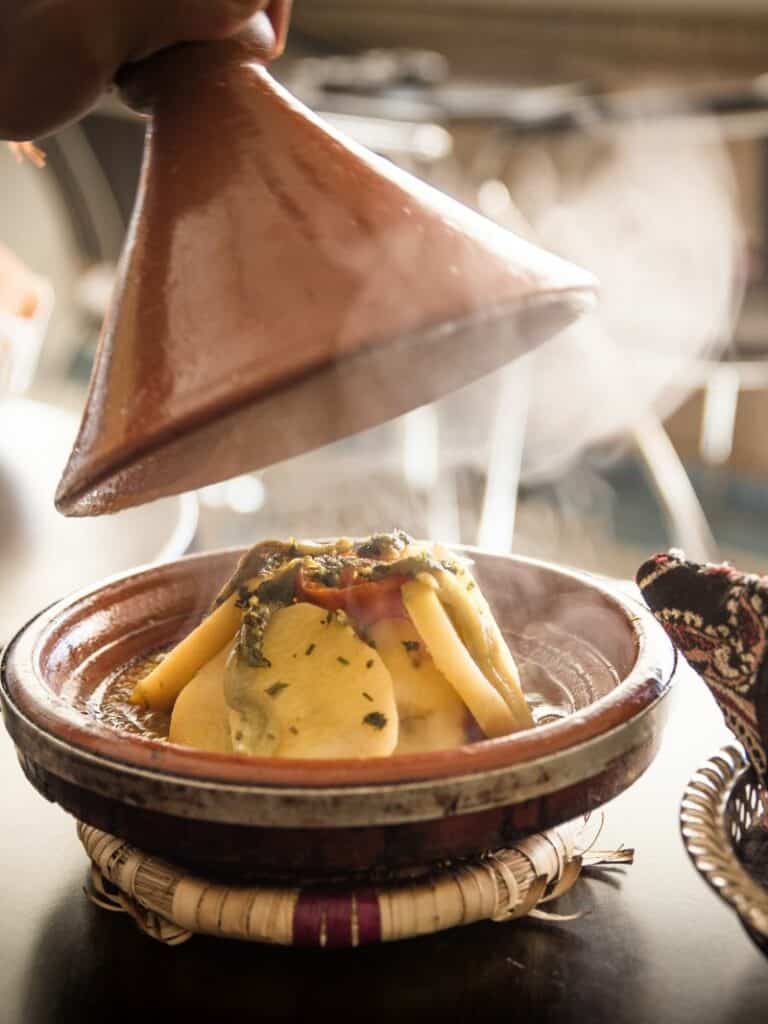
Add cloves with cumin, cinnamon, paprika, and coriander to create a flavorful chicken or lamb tagine sauce.
How to Prepare and Use in Cooking (Tips and Tricks)
Cloves are a commonly used
Preparing
Cloves are the dried flower buds of a plant native to Indonesia. They are usually sold whole and can be used in their whole form or ground into a powder.
To use whole cloves, remove them from the package and use a knife or a mortar and pestle to crush them slightly before adding them to your dish.
If using ground cloves, measure the required amount and add it to your dish as per the recipe.
Storing
Whole cloves can be stored in an airtight container in a cool, dry place for up to a year. Ground cloves, however, don’t keep well and can lose their flavor and aroma quickly.
To keep ground cloves fresh and potent, store them in an airtight refrigerator container and use them within six months.
How to use cloves in savory dishes
Cloves are commonly used in soups, stews, and curries to add depth to the flavor.
They pair well with cinnamon, ginger, and cumin and are often used in
Cloves flavor rice, pasta, and vegetables like sweet potatoes and carrots.
How to use cloves in sweet dishes
Cloves are often used in baking and desserts to add warmth and sweetness. They pair well with warm spices like cinnamon, nutmeg, and allspice.
Use cloves to flavor desserts like apple pies, gingerbread cookies, and spiced cakes. Add cloves to hot drinks like mulled wine, chai tea, or hot chocolate.
Where to Buy Cloves
Cloves are a popular
Regardless of where you buy your cloves, read product reviews and check the expiration date before purchasing to ensure you get the best quality product.
Cloves Substitutes
If you don’t have any cloves in the kitchen, there are many spices that can be substitutes:
Allspice
Allspice is a good substitute for cloves as it is slightly sweet and has a similar warm aroma. Use about the same amount of allspice as you would have used for cloves.
Cinnamon
Cinnamon has a warm and sweet flavor just like cloves. Use it in equal amounts as you would have used for cloves in most dishes.
Nutmeg
Nutmeg has a slightly sweeter and warm flavor than cloves. Use it sparingly, as it is much stronger than cloves.
Star anise
Star anise has a licorice-like flavor and aroma, making it a good substitute for cloves in Chinese five-spice powder dishes.
Fennel seeds
Some recipes may benefit from the anise-like flavor of fennel seeds. Use it in equal amounts as you would have used for cloves.
Cardamom
Cardamom‘s spicy and floral flavor makes it a good substitute for cloves. Use it in equal amounts or less, as it is stronger than cloves.
Ginger
Ginger’s warm and slightly spicy taste makes it a good substitute for cloves in savory or spicy dishes. Use it more significantly, as it is less potent than cloves.

